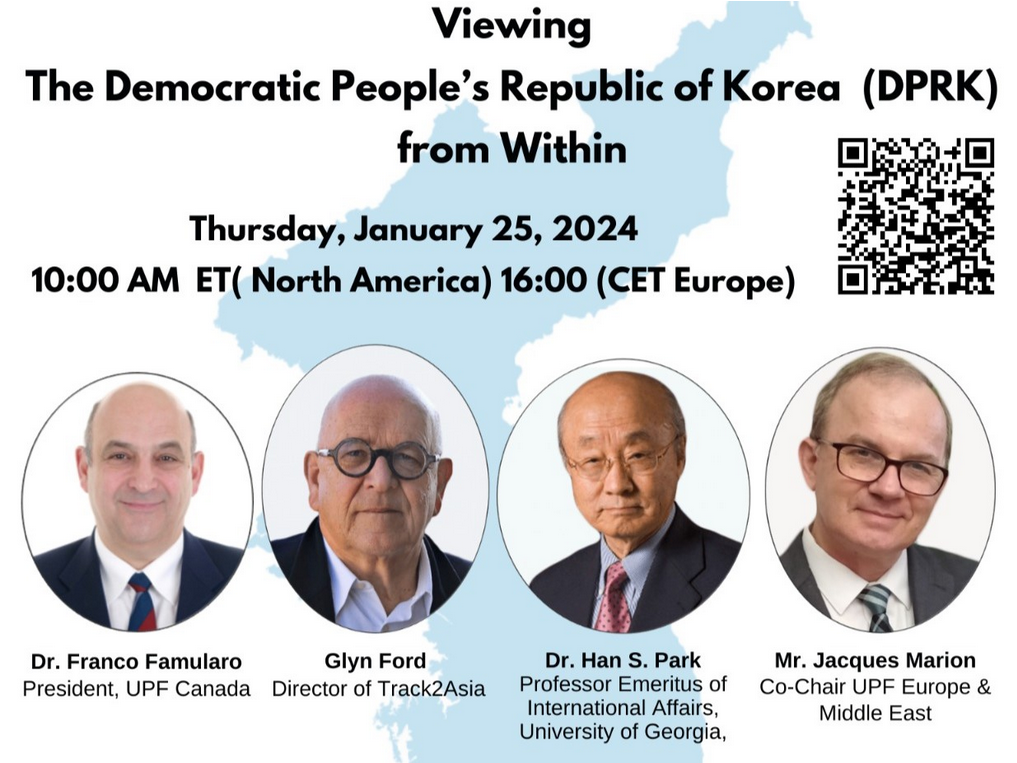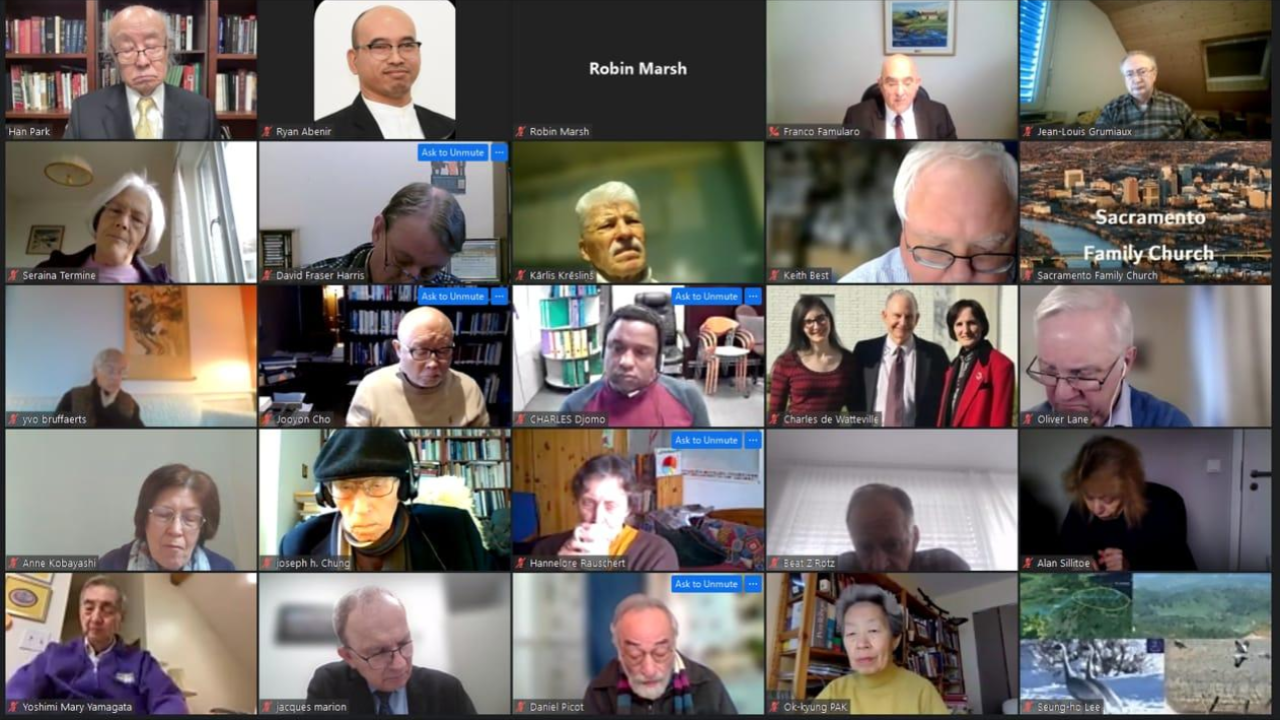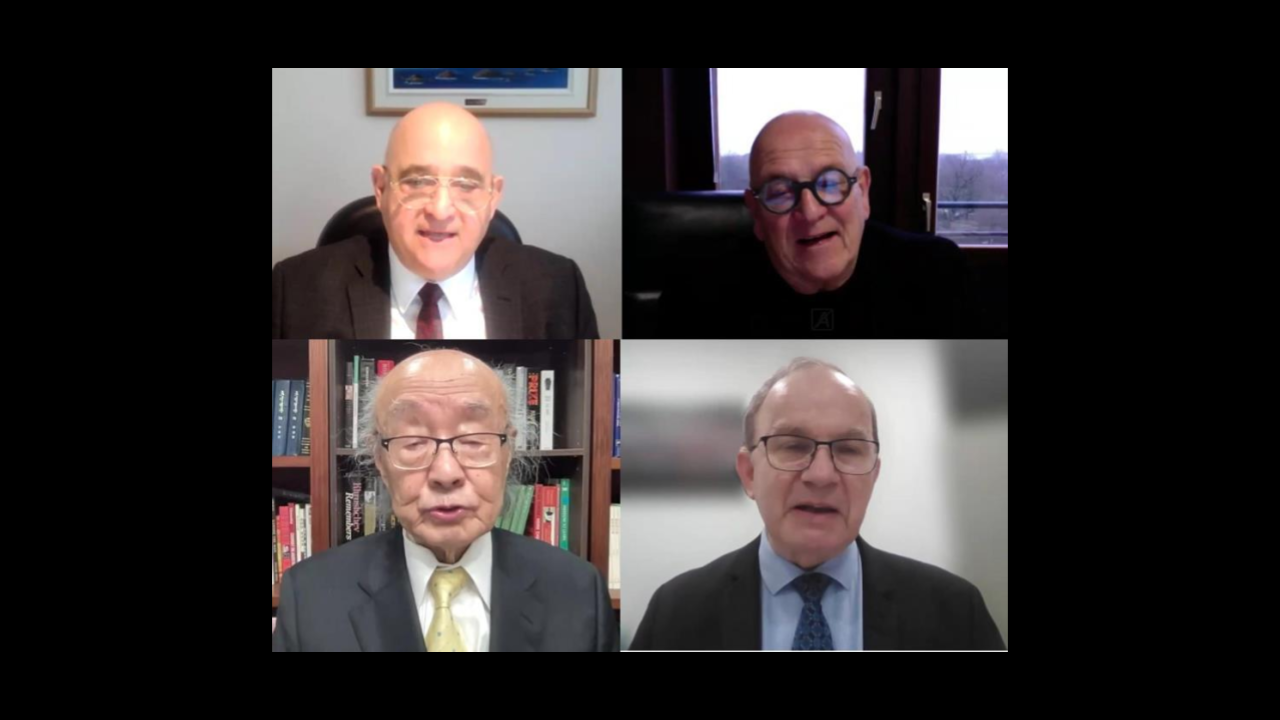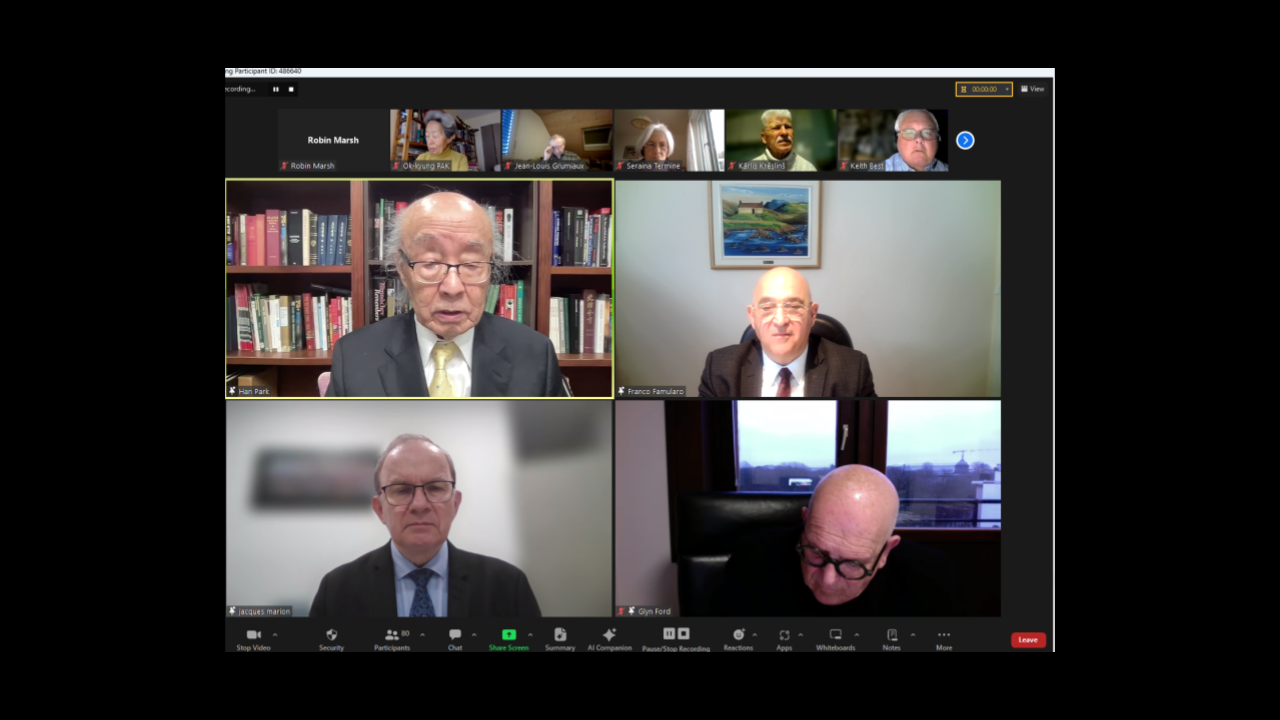 January 25, 2024
January 25, 2024
Robert Duffy – Secretary-General, UPF Canada
For the 7th session of UPF’s search for insights into the realities of the Democratic People’s Republic of Korea (DPRK), its political and social life, and its perceptions of itself and of those neighbors with whom it is engaged or at odds, the two keynote speakers were exceptionally insightful.
Moderated by Dr. Franco Famularo, President of UPF Canada, the meeting began with his recalling that the purpose of the webinar was to emphasize the urgent need for dialogue at a time of crisis when there is very limited understanding of the DPRK in the West and how too often alternative views are brushed off as propaganda.
Mr. Jacques Marion, Co-Chair of UPF Europe and the Middle East then reminded the audience participating from around the world that our UPF founders have gone to great lengths to establish trust with the leadership of the DPRK beginning with a meeting with Kim Il Sung in 1991 and most recently at the 2022 Seoul World Summit whose Seoul Declaration focused on Korean reunification by promoting the initiative of “Two States Toward One Nation: One Peninsula, One People, One Culture”. Giving context to the program by recalling recent declarations by Kim Jeong Un regarding South Korea, Mr. Marion asked the two speakers about the prospects for rapprochement between the North and South, which was the lead-in to our speakers sharing their thoughts based on their decades of experience researching and visiting the DPRK.
Mr. Glyn Ford, a veteran of 25 years as a member of the European Parliament and new to our program, is a board member of the Northeast Asia Economic Forum (NEAEF) and the Pacific Century Institute (PCI), as well as one of the European co-organizers of several Korean Global Forum (KGF) events. Having taught Science and Technology Policy at Tokyo University in the 1980s, Ford was quickly added as a member of the EU’s Delegation for Relations with Japan. As his interest in East Asia expanded over the years to South Korea and China, he was given increasing responsibility for the EU’s relations with Korea, China, and the ASEAN nations. He was appointed in 2004 by the Council of Ministers as the EU’s Chief Election Observer in Indonesia and over the Malaysian province of Aceh in 2006/7. After many years of engagement with the DPRK, he is considered one of the most pre-eminent European experts on the Korean peninsula in particular, and East Asia in general. He has authored three books on North Korea, one of which has been translated into Japanese and Korean.
Among many points of interest to the session, Ford noted that the recent public announcement by Kim Jeong Un that unification of the two Koreas is not possible since the two have diverged to such a degree that they no longer can be meaningfully called one people is not new. Rather, he added, this announcement merely formalizes a policy that has existed since the 1990s when it became clear to the North that the two Koreas had reached a point of no return in terms of reunification.
Dr. Han S. Park is the University Professor Emeritus of International Affairs and Founding Director of the Center for the Study of Global Issues (GLOBIS) at the University of Georgia, USA. Born in China (Manchuria) to immigrant Korean parents, Dr. Park received his education in China, Korea, and the United States, with degrees in Political Science from Seoul National University (B.A.), the American University (M.A.) and the University of Minnesota (Ph.D.). Dr. Park is the thirteenth recipient of the Gandhi-King-Ikeda Community Builder’s Prize in 2010 for his commitment to finding peaceful solutions to challenges arising from the Korean peninsula, an honor he shares with previous recipients Nelson Mandela, Mikhail Gorbachev, John Hume, Desmond Tutu, and Yitzhak Rabin.
Author of many books on Globalization and North Korea, Park has been honored by the University of Georgia with a professorship in his name: the Han S. Park Professor of Peace Studies.
Dr. Park made several interesting comments. He pointed out that in politics perception is reality: the self-perception of a country will differ from its perceptions by other countries, a universal truism. Perception does not necessarily conform to reality, but regardless, perception has to be acknowledged as reality in political relations between countries. He applied this maxim to the countries that surround and engage with North Korea to highlight just how different each country’s views of themselves, and the others are. In this regard, the internal logic of each country’s foreign policies reflects these perceptions. Another interesting observation that Park addressed was that military and industrial interests often drive a country’s foreign policy, ranging from giving aid to friendly nations so that said nations can buy arms from the donor nation. Economic benefits from these arrangements for the donor nation coupled with the financial benefits to shareholders of related businesses make for a potent incentive to maintain an active military presence or at least a potential military presence in areas of higher risk of active threats. Again, the USA, Japan and the ROK doing military exercises off the coast of North Korea will be perceived by North Korea differently than China and differently than South Korea or the USA. One side sees it as a deterrence exercise, the other as a provocation. Perception IS reality.
Through the Q&A portion after the two main presentations, the question of a meaningful and realistic resolution to the problem was sought. The idea of a two-state solution was suggested, as was the idea of a confederation of the two states – each maintaining its political and ideological systems but sharing a greater degree of cooperation on many levels, including culturally and economically.
Original recording of this webinar: https://www.facebook.com/watch/?v=932262284988571&ref=sharing
Recording with French interpretation: https://www.facebook.com/share/v/yB28oSSmFr2jhBJv/?mibextid=ZbWKwL



